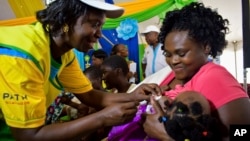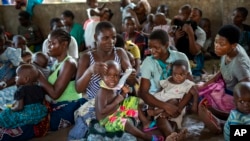Preparations are underway for the mass rollout of the world’s first malaria vaccine to protect millions of children in Africa.
The rollout is being funded by Gavi, the Vaccine Alliance, for nearly $160 million.
The World Health Organization said Gavi’s multimillion-dollar funding marks a key advance in the fight against one of Africa’s most severe public health threats. It noted that countries in sub-Saharan Africa bear the brunt of the yearly toll of more than 240 million global cases of malaria, including more than 600,000 reported deaths. The main victims are children under age 5.
WHO regional director for Africa Matshidiso Moeti said one child dies every minute in Africa, with catastrophic consequences for families, communities and national development.
The vaccine was introduced in Africa in 2019. Since then, more than 1.3 million children have benefited from the lifesaving inoculations in three pilot countries — Ghana, Kenya and Malawi. Moeti said those countries have reported a 30 percent drop in hospitalizations of children with severe malaria and a 9% reduction in child deaths.
“If delivered at scale, millions of new cases could be averted, and tens of thousands of lives saved every year,” Moeti said. “We were encouraged to see that demand for the vaccine is high, even in the context of COVID-19, with the first dose reaching between 73% to over 90% coverage.”
Thabani Maphosa, managing director of country programs at Gavi, called the vaccine the most effective tool in the fight against malaria, one that will save children’s lives. However, he said, demand for the lifesaving product will outstrip supply.
“Our challenge during this critical phase is to ensure the doses we have available are used as effectively and equitably as possible,” Maphosa said. “With this is mind, Gavi today is opening an application window for malaria support.”
He said the three pilot countries, which already have experience in rolling out the vaccine, will get first crack at applying for and receiving funding. So, practically speaking, Maphosa said, they will require little help in setting up their systems to get the operation underway.
Maphosa said a second round of funding will take place at the end of the year. At that time, he said other countries with moderate to high cases of severe malaria can submit applications for support.





